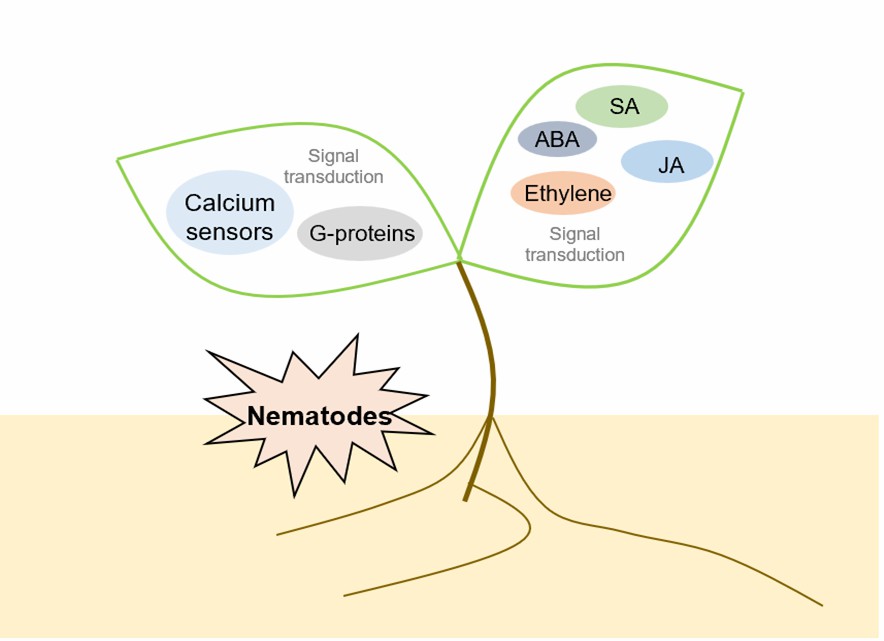Mechanism Analysis of Regulating Plant Hormone by Effector Proteins
Phytohormone metabolic pathways play an important role in plant disease resistance. During the interaction between plant parasitic nematodes and hosts, many hormones metabolic pathways are involved, among which auxin (IAA) and cytokinin (CTK) metabolic pathways are mainly related to the establishment and maintenance of nematode feeding sites. The metabolic pathways of salicylic acid (SA) and jasmonic acid (JA) are mainly related to plant resistance, and ethylene (ethylene, ET) can co-operate with the auxin pathway or jasmonic acid pathway to have a corresponding impact.
Lifeasible develops an advanced platform equipped with advanced instruments and professional staff to perform mechanism analysis of effector proteins with a high standard. We customize featured services according to customers' needs. We deliver satisfactory and reliable results and reports on time to our customers worldwide.
Mechanism Analysis of Regulating SA by Effector Proteins
- Salicylic acid is a critical hormone that plays direct or indirect roles in regulating many aspects of plant growth and development, as well as thermogenesis and disease resistance. It has been found that effector proteins secreted by many plant nematodes can regulate plant SA pathway and thus regulate host defense response.
 Fig.1 Plant hormone signaling crosstalk in response of nematodes.
Fig.1 Plant hormone signaling crosstalk in response of nematodes.
- Lifeasible provides an analysis of SA that regulated by effector proteins in plant nematodes, including HgGLAND18, Mi-CM-3, 10A06, and others, which can inhibit the expression of key genes in the salicylic acid metabolic pathway, such as PR1a, PR2, WRKY12, and P11, resulting in the reduction of salicylic acid content, thus promoting plant nematode diseases.
Mechanism Analysis of Regulating JA by Effector Proteins
- Jasmonic acid (JA) and its derived molecules are commonly designated as jasmonates (JAs), which have been associated with plant defense against herbivory and necrotrophic pathogen attacks. On the other hand, JAs suppress plant resistance responses against biotrophic and hemibiotrophic pathogens.
- We provide an analysis of JA that is regulated by effector proteins in plant nematodes, including MiISE5, MiISE6, Mj-FAR-1, and others, which inhibit the expression of key genes in the jasmonic acid metabolic pathway, such as PR4 and PDF1.2, promoting parasitism by inhibiting the host's basic defense response.
Mechanism Analysis of Regulating ET by Effector Proteins
- Ethylene is a gaseous phytohormone produced by plants in response to various internal and environmental stimuli, which triggers a wide range of physiological and morphological responses.
- Ethylene promoted the infection of plant nematodes. We provide an analysis of ET that is regulated by effector proteins in plant nematodes, which may have a corresponding impact with auxin.
Lifeasible offers services covering mechanism analysis of effector proteins to meet your research demands. With years of experience in plant science, our professional platforms can help our clients solve types of difficulties. If you are interested in our services or have any questions, please feel free to contact us or make an online inquiry.
For research or industrial raw materials, not for personal medical use!
 Fig.1 Plant hormone signaling crosstalk in response of nematodes.
Fig.1 Plant hormone signaling crosstalk in response of nematodes.